How do you discover yourself? Do you become spiritual and go to the Himalayas to meditate? Do you reflect on how you have lived your life till now? Do you listen to what others have to say about you? Or do you listen to what you have to say about others?
Here’s the answer: You listen to what you have to say about others. How you are perceiving others, observing and judging others can reveal a lot about yourself and help you gain a deeper understanding of the self. This is how do you discover yourself.
What we can learn from how we judge others
The way we judge others can reveal a lot about ourselves, including our own values, biases, and insecurities. By reflecting on our judgments of others, we can gain insight into our own thought processes and areas where we may need to work on personal growth. So if you are wondering How do you discover yourself, then look inside yourself.
One thing we can learn from how we judge others is what we value in ourselves. For example, if we tend to judge others positively for being kind or compassionate, it may be because we also value these qualities in ourselves.
Conversely, if we tend to judge others negatively for being selfish or untrustworthy, it may be because we see these qualities as negative and strive to avoid them in ourselves.
On the other hand, our judgments of others can also reveal our own biases and insecurities. For example, if we judge someone negatively based on their appearance or background, it may be because we hold certain biases or prejudices that we need to work on.
Additionally, if we tend to judge others harshly for their mistakes or shortcomings, it may be because we are overly critical of ourselves and need to work on self-compassion and empathy.
Overall, reflecting on our judgments of others can help us become more self-aware and develop a more positive and compassionate perspective towards ourselves and others. In this process, you also learn how to find your self worth. By recognizing our own biases and values, we can work towards personal growth and become more accepting and understanding of those around us.
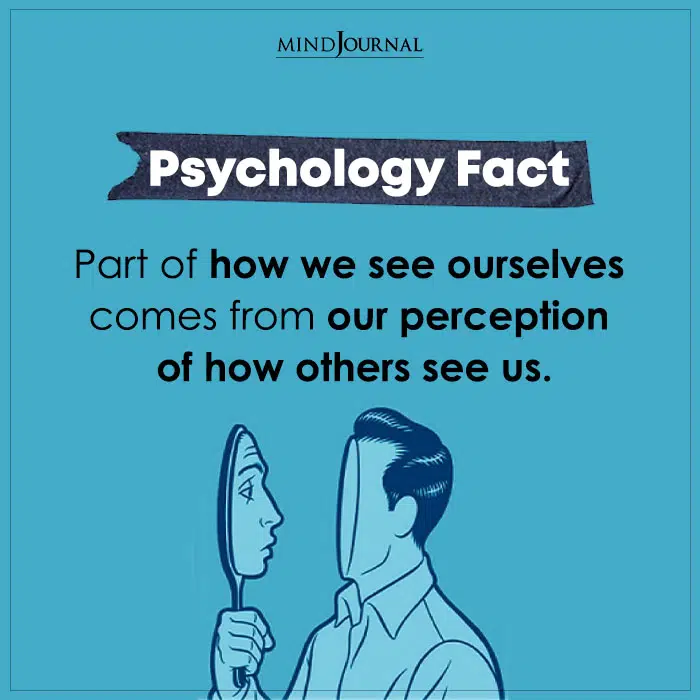
Related: Self-Worth Quotes: How To Find Your Self Worth
What your perception of others says about you
The answer to the driving question How do you discover yourself? can be found only when you observe yourself. Your perception of others can reveal a lot about your own thoughts, feelings, and beliefs. Let’s take a look at what it can reveal about you –
1. Your judgments of others may reflect your own insecurities or fears. For instance, if you judge someone for being too loud or outgoing, it may be because you feel self-conscious about your own personality.
2. Your positive perceptions of others may reflect your own values and strengths. So, if you admire someone for their kindness or intelligence, it may be because these are qualities that you also value in yourself.
3. Your perceptions of others may be influenced by your own biases and experiences. This means that if you had negative experiences with a particular group of people, you may be more likely to have negative perceptions of others who belong to that group.
4. Your perceptions of others may reveal your own emotional state. For example, if you are feeling angry or frustrated, you may be more likely to judge others negatively.
Understanding the above four things can help you a lot when learning how to find yourself in life and why your perception of others matters.
How do you discover yourself through your perception of others
Imagine your best friend. Let’s call him Steve. Now you perceive Steve as a genuine good guy, who is smart, confident, and helpful but is rather logical and not too emotional.
Now let’s ask Steve’s girlfriend about Steve. She thinks that Steve is a rather sensible and mature individual who is loving, caring, and comfortable with expressing his emotions freely. But, what does Steve’s dad think about him? Well, he thinks Steve is not serious about life and is still an immature person.
So who is right? How is Steve as a person in reality? Is he too logical? Is he too emotional? Or is he too immature? The answer is Steve is all of these and none of these simultaneously. How we perceive someone doesn’t necessarily define the other person, rather it defines who we are. Our personality traits and ego play a crucial role in our perception, observation and judgment of others.
Related: How Your Way Of Perceiving Others Reveals Who You Are
Our minds form perceptions of people based on our own experiences and relationship with ourselves. The ego tends to project its traits onto others and finds fault with them instead of recognizing its own flaws.
Instead of looking for the flaws we have within ourselves, our ego is focused on the outside to find people and situations to blame for its own flaws and shortcomings. However, by finding faults in others, our ego is only highlighting what we lack within ourselves.
Can you identify sadness in someone if you have never felt sad even once in your entire life? Will you be even aware of that emotion? Then how can you recognize that in someone else? Does it make sense? The same goes for negative emotions such as anger, jealousy, and even toxic behavior.
You will be able to identify only what you have known and experienced yourself. So if you call someone insecure, then it has to mean that you yourself struggle with insecurities. Else you would never know if the other person was insecure. Hence, by judging others, we are only judging ourselves.
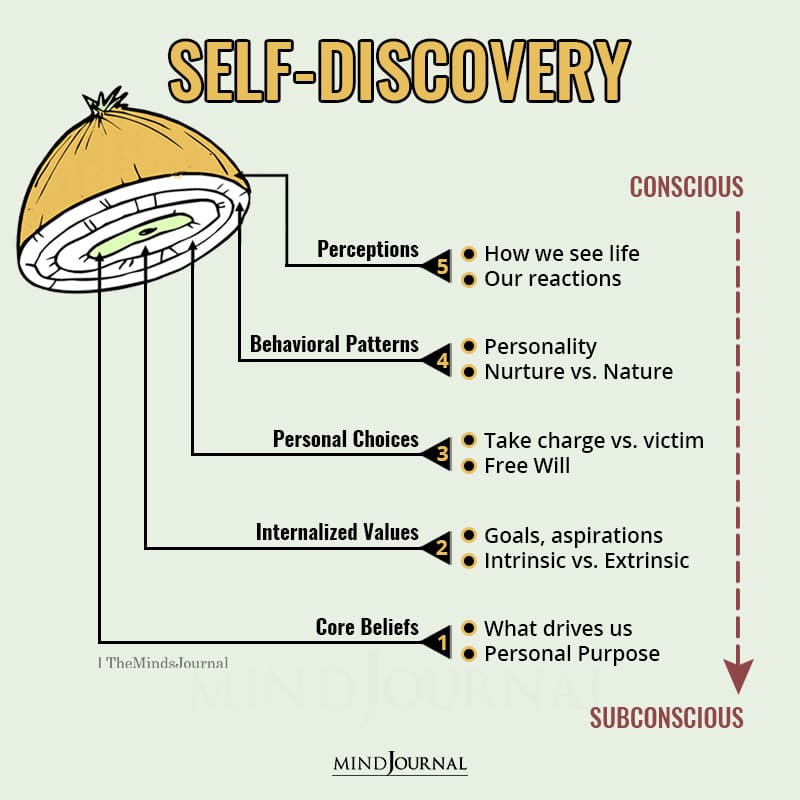
Let’s get back to your friend Steve. As you believe that Steve is confident, helpful and logical, it means that you can identify and relate to these specific traits in Steve. Even though his girlfriend believes he is emotional, you are unable to perceive that trait in him as you may tend to rely on logic and reasons instead of emotions when making important decisions.
Our perception originates from our ego
How do you discover yourself? How to find yourself in life? Observe your ego.
By acknowledging that our judgments and opinions of others stem from our ego, we can use our reactions towards them to gain self-awareness and personal growth. Negative reactions can reveal that we are attached to specific expectations of how things should be, or that we are avoiding a part of ourselves that needs healing.
When we start to view ourselves as the problem in every situation, we can bring awareness to the parts of ourselves that we have suppressed, often referred to as our “shadow self.”
It may seem daunting to always view ourselves as the source of the problem and resist the urge to blame others. However, this mindset is actually empowering because it enables us to be our own solution.
To heal and grow, we must practice complete honesty with ourselves. We must accept our emotions without judgment, sending unconditional love to all parts of ourselves. By doing so, we can transform our relationships with others and ourselves, leading to a more authentic and fulfilling life.
Related: Shadow Self: 3 Ways To Embrace Your Inner Darkness
How to find yourself in life? Look for flaws within yourself
Of course, taking responsibility for our own actions and reactions is difficult, but it allows us to have agency and control over our lives. By being honest with ourselves and acknowledging our own drawbacks, we can develop mindfulness and self-awareness to have a more genuine relationship with our inner selves.
This, in turn, will empower us to have more positive and compassionate relationships with others. This is the first step if you are learning about how to find yourself.
When we are able to build a deep and honest relationship with ourselves, we will have greater self-awareness and acceptance. This can lead to a sense of calm and confidence that extends to all aspects of our being. This is my answer to your question – How do you discover yourself?
As we learn to love and accept ourselves, we will begin to recognize these qualities in others. We will also find those people or situations which once triggered negative reactions are met with compassion and forgiveness. The fact is by transforming our relationship with ourselves, we can transform our relationships with others, paving the way for healing and growth.
By focusing on our own personal development and being kind and understanding towards ourselves, we can create a ripple effect of positivity in our relationships with others. And that’s how you find yourself in life.
Related: Perception Vs Reality: 7 Things To Keep In Mind
How do you discover yourself through your perception
Finding yourself through your perception of others can be a complex and challenging process that involves introspection, self-reflection, and empathy. However, the following steps can help you to get started on your journey of self-discovery –
1. Be mindful of how you judge others
Take note of your judgments and opinions of others. Start by becoming aware of your thoughts and feelings towards others. Notice what you like and dislike about them, and what qualities you admire or criticize. Be honest with yourself and avoid judging yourself for your thoughts and feelings.
2. Identify why you perceive others the way you do
Reflect on your perception of others and try to recognize the root cause for this particular way of perceiving others. Are your perceptions based on your own biases or experiences? Do they reflect your own insecurities or fears? Or do they reflect your values and beliefs?
Try to understand why you are perceiving others this way. The key is to identify the underlying reasons for your perceptions. And a key step towards your journey of how to find yourself through your perception of others.
3. Identify what you can learn from others
Every person has unique experiences, perspectives, and strengths that we can learn from. Identify what you can learn from others, whether it’s a new skill, a different way of thinking, or a new approach to a problem. This is one of the key exercises if you are trying to understand how to discover yourself.
4. Consider how others perceive you
Just as you are perceiving others, others are perceiving you too. Consider how others see you, and whether their perceptions align with how you see yourself. Are there areas where you could improve or change to be more aligned with how you want to be perceived? And that will ease your journey toward how to find yourself in life.
5. Practice empathy
Finally, practice empathy towards others. Try to put yourself in their shoes and understand their perspectives and experiences. This can help you develop a deeper understanding of yourself as well, as you learn to see yourself through the eyes of others.
This is how to discover yourself through your perception of others. Remember that finding yourself is a journey, and it’s okay if it takes time. Be patient and compassionate towards yourself as you explore your perceptions of others and yourself.
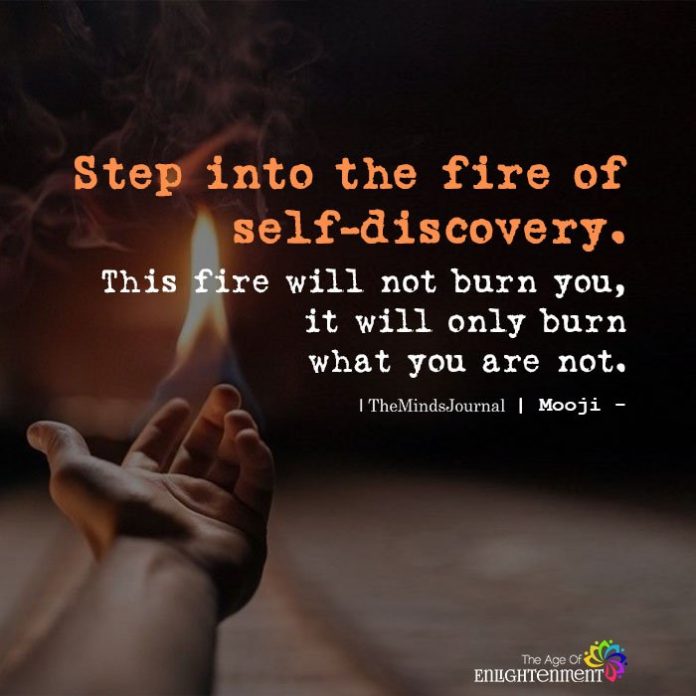
Our perceptions define us
Finding yourself through your perception of others can be a valuable tool in personal growth and self-discovery. By examining how you interact with others and how they perceive you, you can gain valuable insights into your own character and behavior and in this process you will also learn how to find your self worth too.

When learning how to discover yourself, it’s important to be aware of your perceptions of others and to recognize that they may be influenced by your own thoughts, feelings, and experiences. This process requires honesty, self-reflection, and a willingness to learn from others.
Ultimately, by cultivating a strong sense of self-awareness and authenticity, we can develop more positive and fulfilling relationships with others, while also achieving a greater sense of inner peace and contentment.
If you are learning about how to find yourself in life, remember, the journey towards self-discovery is ongoing, and embracing the perspectives of others can help us continue to evolve and grow. By being mindful of your perceptions, you can gain insight into your own beliefs and values, and work towards developing a more positive and compassionate outlook.
Related: Why Heartbreaks Are Necessary For Self-Discovery And Growth?
Did you enjoy reading about how to discover yourself? Comment and share your thoughts!
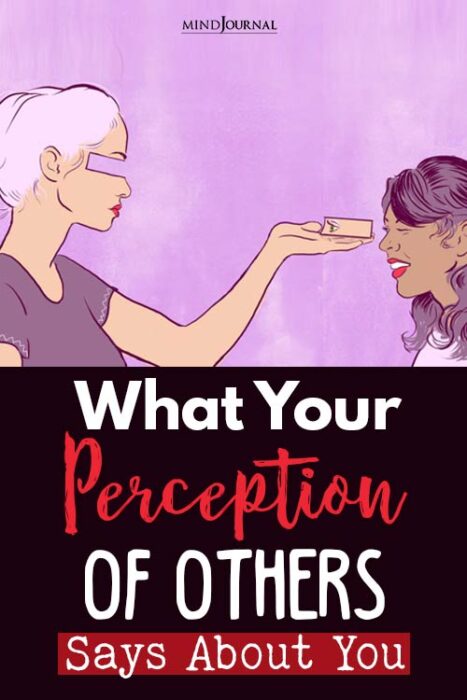
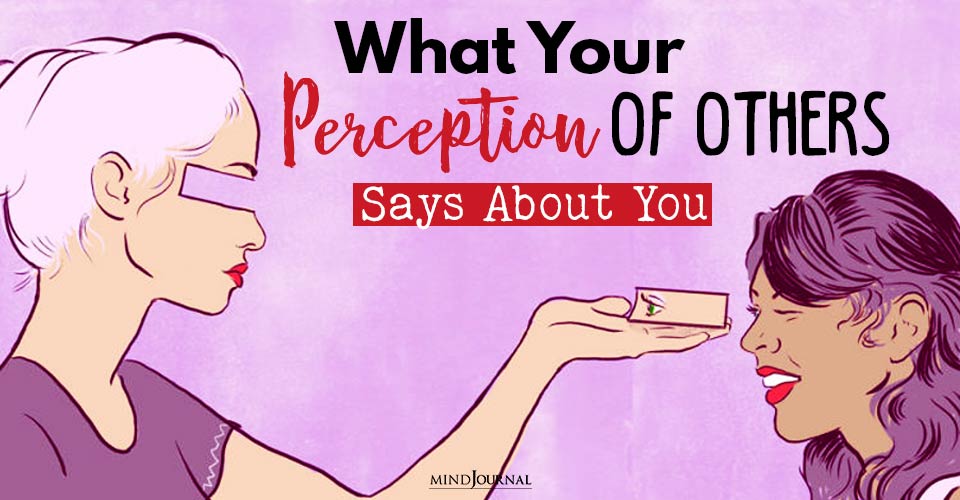







Leave a Reply
You must be logged in to post a comment.